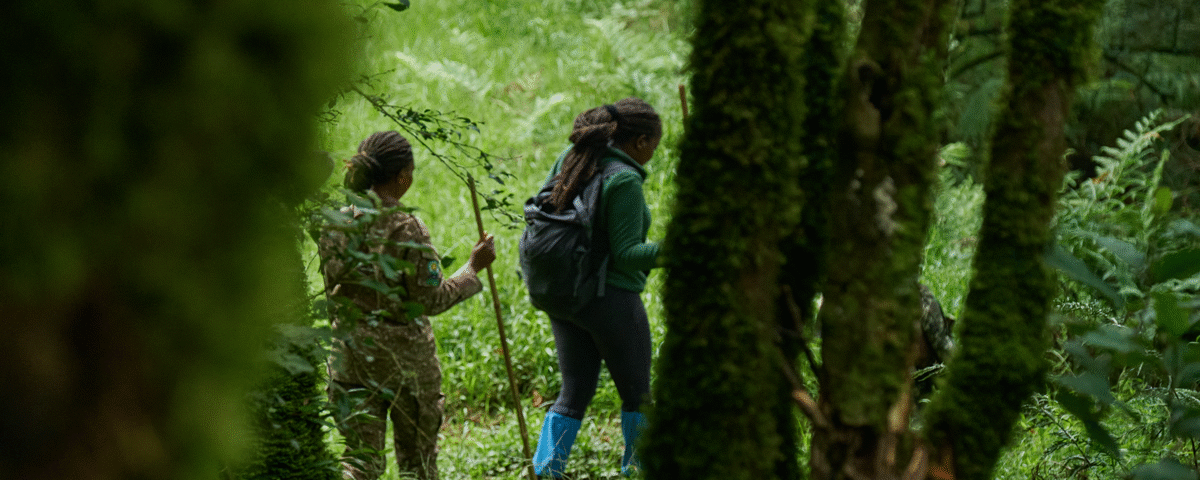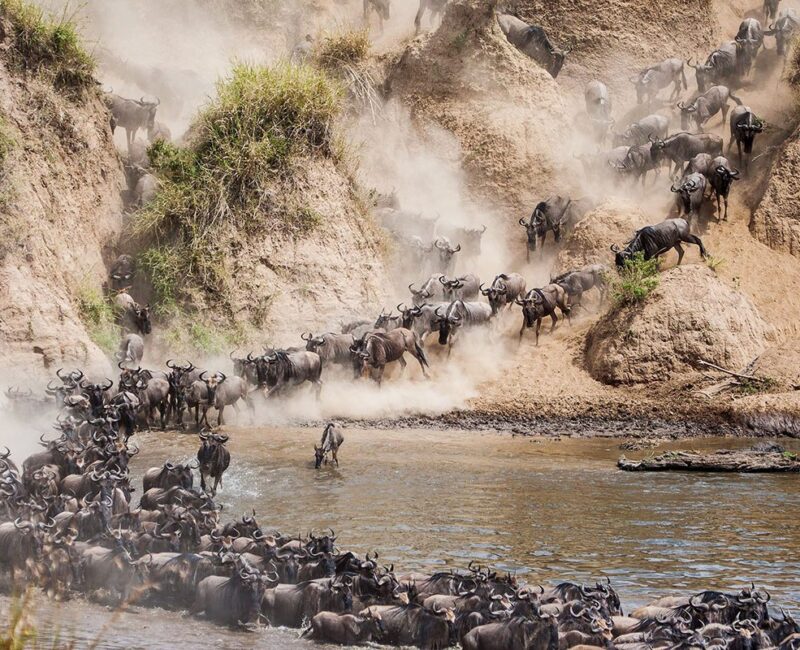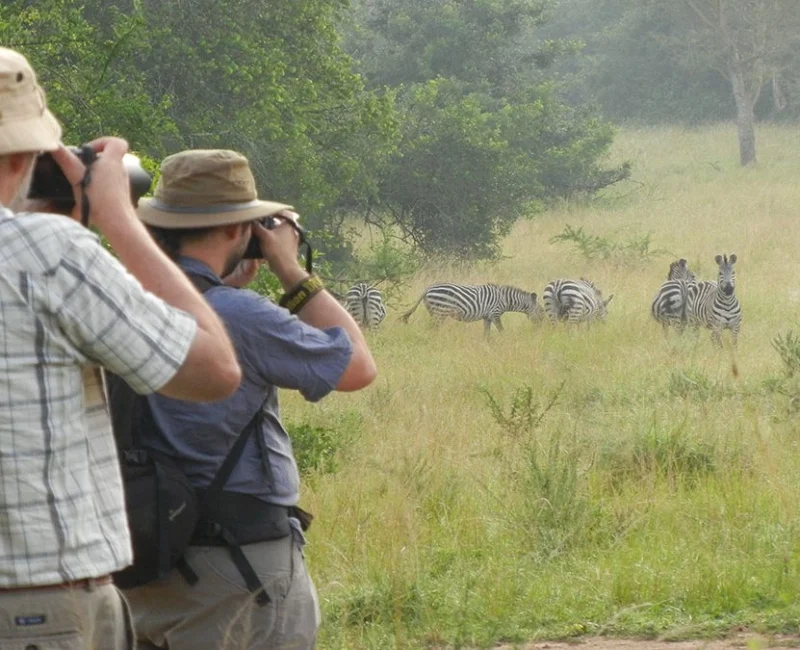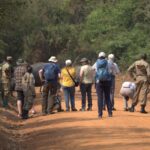
Do Walking Safaris in Uganda Cover Cultural Encounters?
October 1, 2025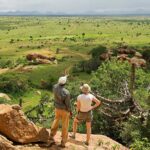
Do Walking Safaris in Uganda Include Birding Opportunities?
October 1, 2025Do Walking Safaris Support Conservation in Uganda?
Do walking safaris support conservation in Uganda, and why should this matter to travelers choosing Uganda Safaris? Walking safaris are among the most intimate and rewarding ways to experience the wild. Unlike vehicle-based tours, these adventures place travelers directly on the ground, where every sound, footprint, and scent tells a story of life in the wilderness. Guided by experts, walking safaris allow participants to observe and appreciate the delicate balance of ecosystems while contributing to broader conservation efforts. Nkofu Africa Safaris emphasizes that these experiences are not just thrilling adventures—they are critical tools for conservation awareness, community support, and wildlife protection.
Introduction: Connecting Adventure with Conservation
Uganda Wildlife Safaris and Uganda Chimpanzee Safaris become even more meaningful when combined with walking adventures because visitors can see firsthand the challenges facing conservation. Rangers and guides explain the importance of protecting habitats, preventing poaching, and promoting sustainable tourism practices. Do walking safaris support conservation in Uganda beyond awareness? Yes, they do. Entrance fees, ranger employment, and community tourism initiatives all directly contribute to funding Uganda Best Safaris conservation programs, protecting endangered species like chimpanzees, rhinos, and gorillas.
Furthermore, walking safaris integrate perfectly with Uganda Gorilla Safaris, Uganda Birding Safaris, and Uganda Cultural Safaris. Imagine starting your day on a guided walk through the savannah, spotting elephants, antelopes, and rare birds, then continuing your adventure with gorilla trekking or visiting cultural villages nearby. Every step taken on a walking safari strengthens the bond between travelers, nature, and local communities. For Nkofu Africa Safaris, this is the essence of conservation-based tourism—creating lasting value for both wildlife and people.
Conservation Awareness Through Walking Safaris
Do walking safaris support conservation in Uganda by raising awareness among travelers? Absolutely. Walking safaris provide a slower, more reflective approach to tourism compared to vehicle-based game drives. While vehicles may cover more ground, walking safaris allow travelers to notice small details such as animal tracks, medicinal plants, bird calls, and insect life. Professional rangers explain the ecological significance of these details, helping visitors appreciate the interconnectedness of the ecosystem.
When travelers engage in Uganda Chimpanzee Safaris or Uganda Gorilla Trekking Safaris, walking through forests with professional guides becomes a conservation lesson in itself. Rangers highlight threats to habitats, explain anti-poaching measures, and share stories of successful conservation initiatives. This direct education builds empathy and encourages global travelers to become advocates for conservation even after they return home. Do walking safaris support conservation in Uganda through tourist behavior change? Yes. Many visitors who experience guided walks adopt more responsible tourism habits, donate to conservation projects, or spread awareness in their own communities.
Nkofu Africa Safaris ensures that walking safaris are designed to maximize conservation awareness. Whether it’s a guided walk in Ziwa Rhino Sanctuary, where rhinos are being reintroduced, or a forest trek in Kibale National Park during Uganda Chimpanzee Safaris, every step reinforces the message that protecting wildlife is a shared responsibility. By engaging with nature at ground level, travelers build an emotional connection that supports Uganda Best Safaris and strengthens the case for conservation worldwide.
Economic Support for Conservation and Local Communities
Do walking safaris support conservation in Uganda by contributing financially? Yes, and this is one of their most important roles. Entrance fees, guide payments, and conservation levies collected during Uganda Wildlife Safaris directly support park management and anti-poaching operations. Funds generated from walking safaris provide resources for ranger patrols, habitat restoration, and community outreach projects. Without these funds, conservation would rely solely on government budgets and donor support, which are often insufficient.
Walking safaris also create employment opportunities for local communities. Professional rangers, trackers, and cultural guides earn livelihoods through these activities, reducing dependence on activities that may harm wildlife, such as poaching or deforestation. Do walking safaris support conservation in Uganda by improving local livelihoods? Absolutely. When communities benefit economically from tourism, they become more invested in protecting the very wildlife that attracts visitors.
Nkofu Africa Safaris integrates Uganda Cultural Safaris into walking safari itineraries to ensure communities benefit directly. For example, after tracking rhinos in Ziwa or chimpanzees in Budongo, travelers may visit nearby villages to learn about traditional crafts, music, and sustainable farming. These experiences provide income for locals while enriching Uganda Best Safaris with cultural depth. Combining Uganda Gorilla Safaris, Uganda Chimpanzee Safaris, and walking adventures ensures a steady stream of tourism revenue that supports both conservation and community empowerment, creating a sustainable cycle of protection and prosperity.
Reducing Environmental Impact Compared to Vehicle Safaris
Do walking safaris support conservation in Uganda by reducing environmental impact? Yes. Unlike vehicle-based Uganda Wildlife Safaris, which can cause soil erosion, noise pollution, and disturbance to animals, walking safaris have a minimal ecological footprint. Small groups on foot move quietly, allowing wildlife to behave naturally without stress from engine sounds or exhaust fumes. This makes walking safaris a more eco-friendly way to explore Uganda Best Safaris destinations.
Walking safaris also encourage low-impact tourism by limiting the number of participants and restricting off-trail movement. Professional rangers ensure that paths are followed, fragile habitats are protected, and wildlife is observed ethically. Do walking safaris support conservation in Uganda through eco-tourism? Indeed, they do. By offering sustainable alternatives to traditional game drives, they reduce pressure on ecosystems while still generating revenue for conservation efforts.
Nkofu Africa Safaris promotes walking safaris as a complement to Uganda Gorilla Trekking Safaris and Uganda Chimpanzee Safaris, ensuring that travelers balance adventure with responsible tourism. Combining vehicle drives with walking experiences allows for both broad exploration and close-up observation without overburdening sensitive habitats. For birdwatchers, Uganda Birding Safaris conducted on foot are especially effective, as walking allows for quieter, less intrusive encounters with rare and endangered species. By reducing environmental impact while maximizing educational value, walking safaris significantly contribute to conservation in Uganda.
Walking Safaris and Anti-Poaching Efforts
Do walking safaris support conservation in Uganda by aiding anti-poaching initiatives? Yes. Walking safaris create a visible human presence in protected areas, discouraging illegal activities such as poaching, logging, or encroachment. Professional rangers who guide walking safaris also serve as patrols, monitoring wildlife movements and checking for signs of illegal activity. This dual function—tourism and protection—makes walking safaris a vital conservation tool.
During Uganda Chimpanzee Safaris in Kibale or Uganda Gorilla Safaris in Bwindi, walking groups often pass through areas vulnerable to illegal logging or poaching. Rangers explain how walking tourism contributes to surveillance and deterrence, making travelers partners in conservation. Do walking safaris support conservation in Uganda through direct protection? Yes, because ranger-guided groups act as extra eyes on the ground, reporting unusual activity or injured animals.
Nkofu Africa Safaris ensures that walking safaris are coordinated with park authorities, reinforcing security networks. Revenue from these safaris supports ranger salaries, training, and equipment, enabling them to respond effectively to poaching threats. When travelers participate in walking safaris, they actively contribute to anti-poaching initiatives that protect endangered species and maintain ecological balance. This makes Uganda Best Safaris not only a journey of discovery but also a powerful act of conservation support.
Combining Walking Safaris with Gorilla Trekking and Cultural Experiences
Do walking safaris support conservation in Uganda when combined with gorilla trekking and cultural experiences? Absolutely. Walking safaris create awareness of broader ecological issues, while Uganda Gorilla Trekking Safaris emphasize the urgent need to protect critically endangered species. Combining the two provides travelers with a complete understanding of Uganda’s conservation landscape.
Nkofu Africa Safaris designs itineraries where travelers might begin with a walking safari in Ziwa Rhino Sanctuary, continue with Uganda Chimpanzee Safaris in Kibale, and end with Uganda Gorilla Safaris in Bwindi. This combination highlights the importance of protecting diverse species and habitats while ensuring a consistent stream of conservation funding. Do walking safaris support conservation in Uganda through cultural integration? Yes. Uganda Cultural Safaris linked to walking adventures allow travelers to visit communities, support local livelihoods, and learn how people coexist with wildlife.
Birdwatchers can also combine Uganda Birding Safaris with walking tours, observing rare species while contributing to conservation funds. By integrating wildlife, primate, birding, and cultural experiences, Nkofu Africa Safaris ensures that every itinerary reflects the full meaning of Uganda Best Safaris: adventure, education, and conservation.
Why Nkofu Africa Safaris Promotes Walking Safaris for Conservation
Do walking safaris support conservation in Uganda, and why trust Nkofu Africa Safaris with this experience? Nkofu Africa Safaris combines expertise, experience, and commitment to ethical tourism, making us leaders in conservation-based travel. Our professional rangers are trained in wildlife management, ecological interpretation, and first aid, ensuring safety while maximizing educational value. Every walking safari is designed to balance thrill with conservation, positioning Nkofu Africa Safaris as a reliable source for Uganda Best Safaris.
By offering Uganda Gorilla Safaris, Uganda Chimpanzee Safaris, Uganda Wildlife Safaris, Uganda Birding Safaris, and Uganda Cultural Safaris alongside walking adventures, we create multi-dimensional experiences that connect travelers deeply with Uganda’s landscapes. Do walking safaris support conservation in Uganda through Nkofu Africa Safaris’ approach? Yes, because every guest contributes to community livelihoods, park management, and wildlife protection.
Choosing Nkofu Africa Safaris means choosing responsible tourism that benefits both people and wildlife. With carefully curated itineraries, expert guidance, and conservation-focused practices, our walking safaris embody the future of sustainable travel. Every step taken on foot is not just an adventure—it’s a commitment to ensuring that Uganda’s natural wonders endure for generations to come.

